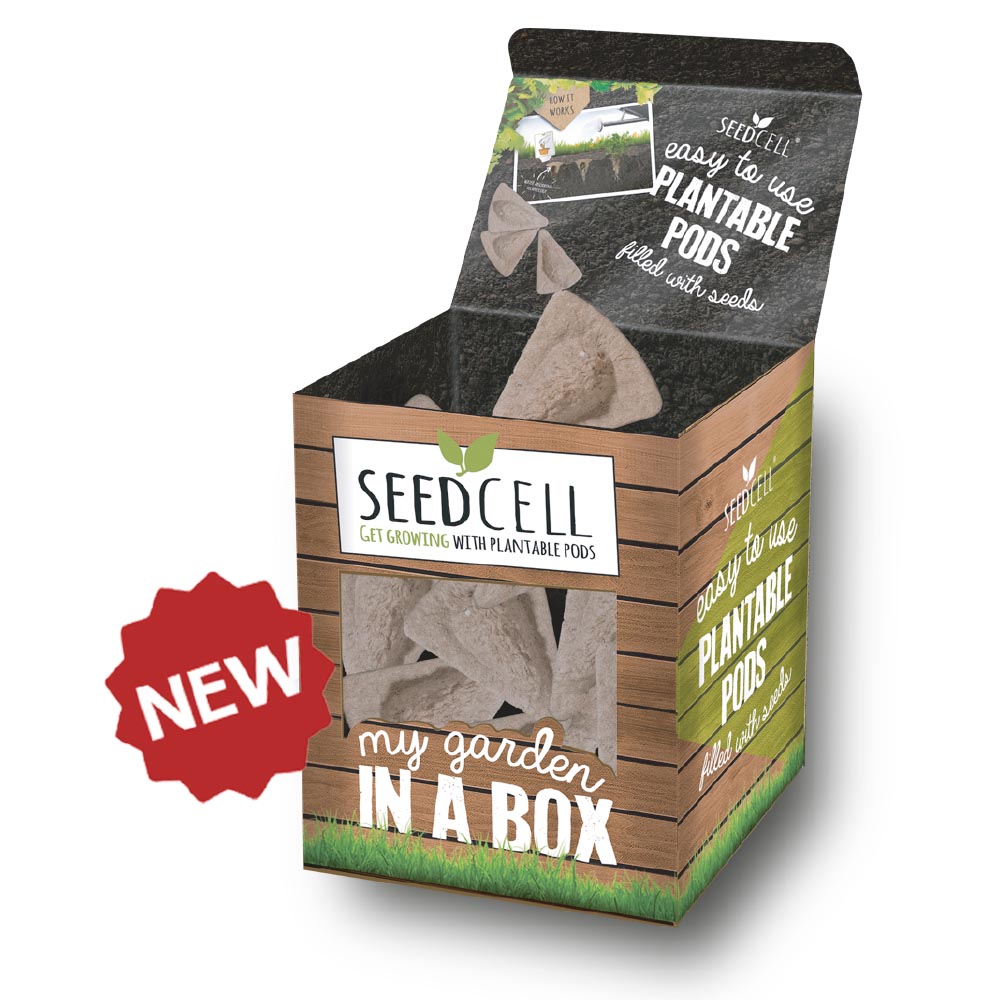 The garden industry must be quicker to adapt to consumer pressure surrounding the issue of single use plastic packaging says Dan Robson, Managing Director and co-founder of Green Digit. Based in Newcastle, his start-up company manufactures and distributes SeedCell®; simple to sow seed pods that employ patented sustainable packaging technology.
The garden industry must be quicker to adapt to consumer pressure surrounding the issue of single use plastic packaging says Dan Robson, Managing Director and co-founder of Green Digit. Based in Newcastle, his start-up company manufactures and distributes SeedCell®; simple to sow seed pods that employ patented sustainable packaging technology.
“Logically, garden products should be produced with the highest regard for the environment – as gardening is one of the most eco-friendly hobbies you can have. Yet the amount of plastic packaging being used to sell many products seems to me, as a relative newcomer to the industry, to be at odds with the fundamental aspect of growing and cultivation.
“My background before I started SeedCell was packaging design. Fundamentally, packaging must safeguard the product, protect consumers from any dangerous parts and allow goods to hold their value within their intended retail environment for as long as possible.
“Garden centres and DIY stores certainly have some of the most demanding shopfloor conditions, with dry goods often in open air spaces due to lack of space in peak sales periods. But they also have some of the most creative sales teams, always looking for new ways of surprising customers and focusing on developing their retail space as a true destination.
“Some alternatives could even help products to become more sustainable whilst also improving perceived value. Instead of plastic hangers for secateurs – perhaps they would look better in branded leather holsters? Does compost need to be in plastic bags – or can it be weighed up and dispensed by the pot, wheelbarrow or truck load? Plastic plant pots – do they have to be black or can they be a colour that can be recycled normally (as black cannot be identified in automated recycling facilities)?
“Our latest product, Garden in a Box, needed a window to enable consumers to see what the box contained. After trialling recycled plastic from water bottles we looked again for an even more sustainable solution – and came across corn starch plastic. Polylactic acid is not a new thing, it was discovered in the 1920s, but has only in recent years been made more economically viable in terms of cost of production. It looks exactly the same as plastic but is derived from renewable resources and will actually break down (to innocuous lactic acid). The seed pods themselves also feature a glue that seals the seeds during manufacture which is made from a completely unique, polymer free starch based adhesive.
“My challenge therefore to other, larger manufacturers with bigger budgets and economies of scale is this: If a young start-up company can successfully market and sell products – across Europe and hopefully soon to the US – made from sustainable, biodegradable materials, then surely others can too.”
Find out more
For more information on SeedCell range, visit www.seedcell.co.uk
Notes for editors: Dan Robson holds a masters degree in Multidisciplinary Packaging Design Innovation from Northumbria University, and has given talks alongside previous alumni including Jonathan Ive, Chief Design Officer at Apple. He launched SeedCell with his brother Joe to the garden industry in 2015, winning the GIMA Innovators Seed Corn Fund after raising money to launch the product on kickstarter the year before.
For more information, interviews, or images please contact the Green Digit PR team:
Robbie Cumming Tel: 07765 251173 email: robbie@hornbywhitefootpr.co.uk
Kimberley Hornby Tel: 01604 373700 email: kimberley@hornbywhitefootpr.co.uk
